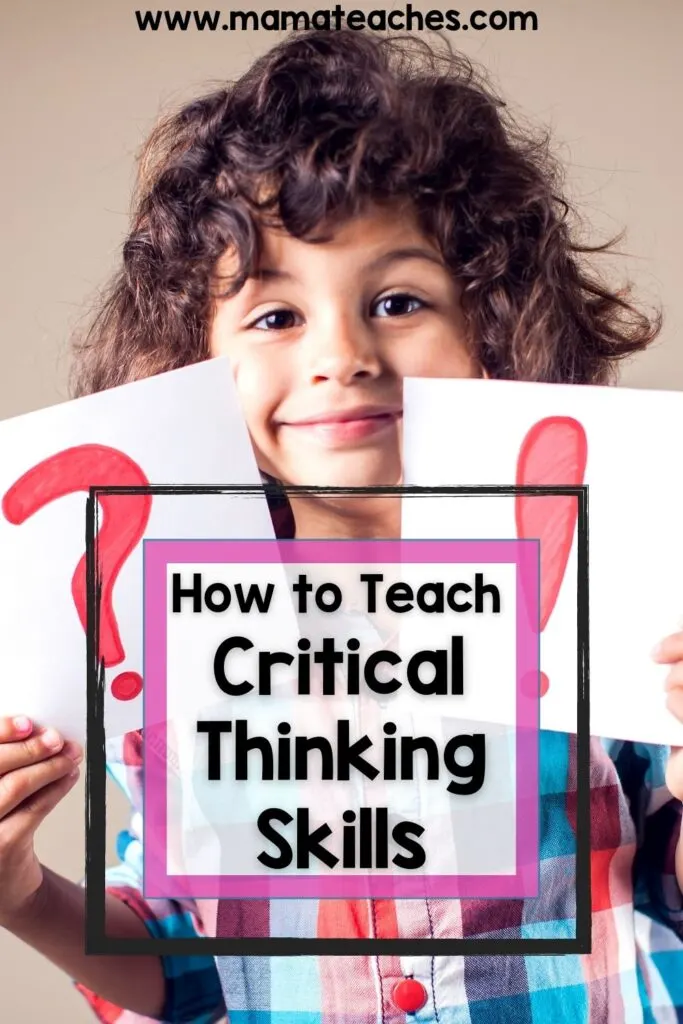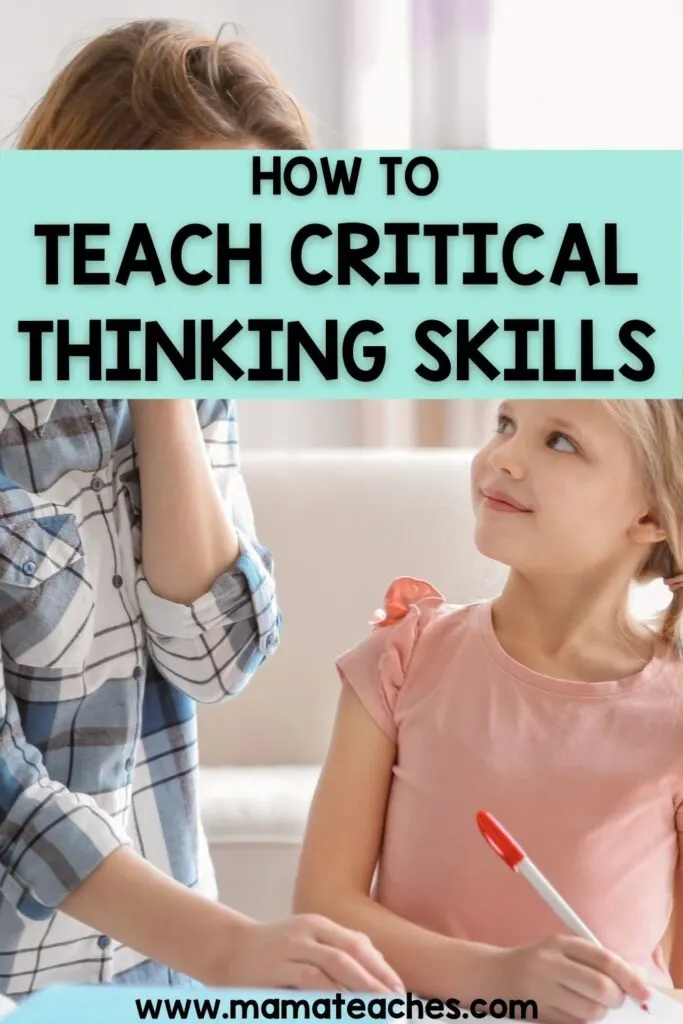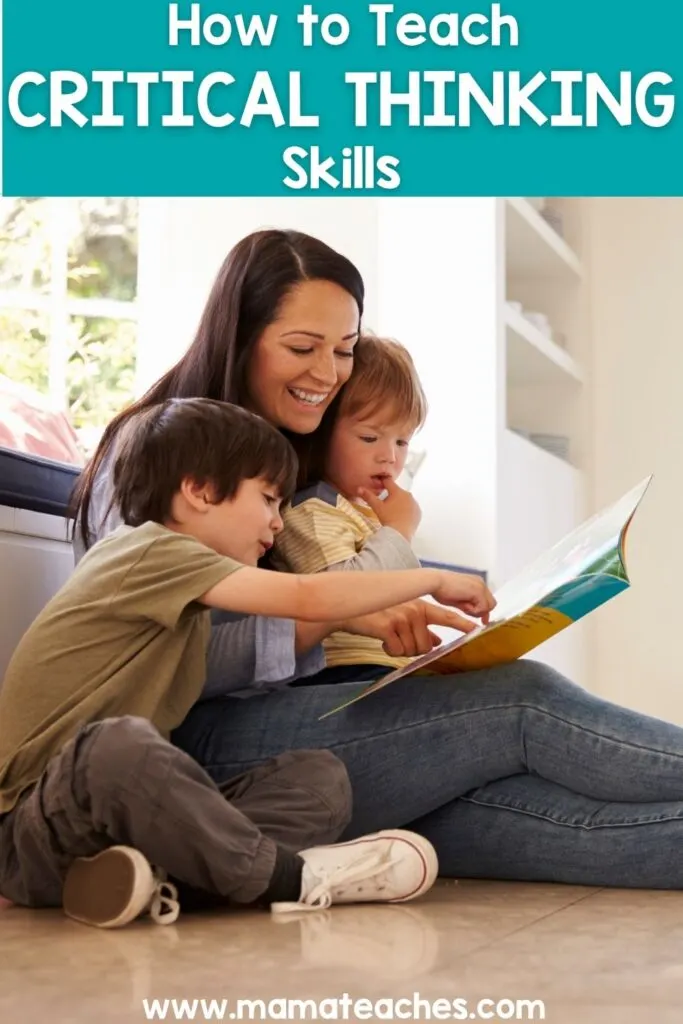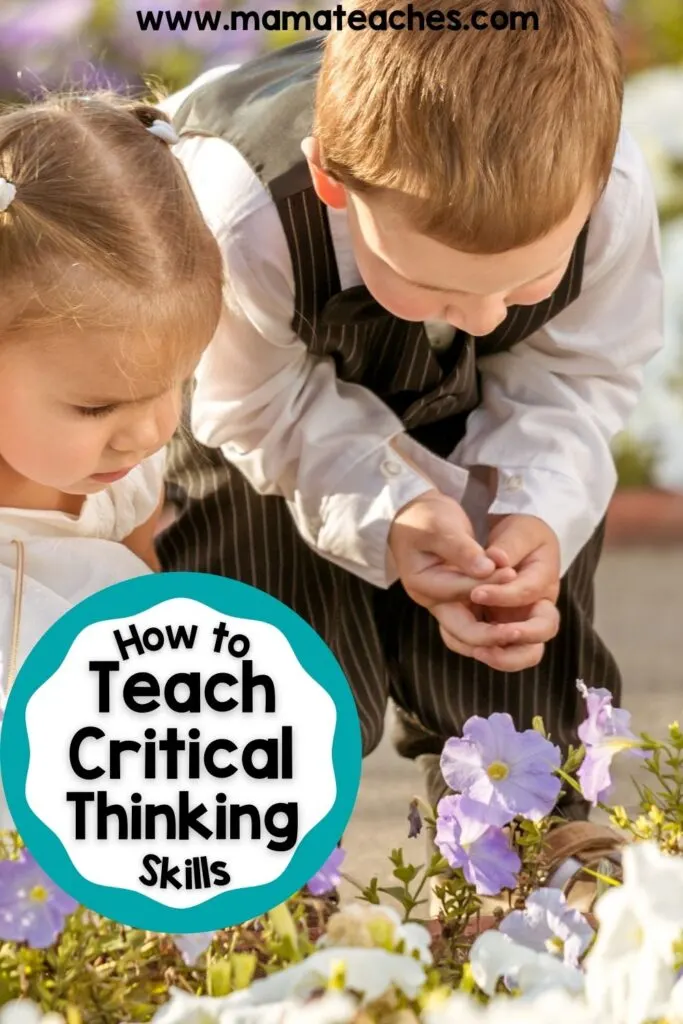Our kids are future problem solvers and world changers.
Help them on their way by learning how to teach critical thinking skills.
What Is Critical Thinking?
Learning happens in levels.
When you first learn something new, you learn the names of terms and memorize facts.
Later, you analyze what you have learned, ask questions, and make connections.
This second level is called critical thinking.
In order to make judgments and decisions, you need critical thinking skills.
Not only does it help you in school; it helps you in life!

This article contains affiliate links to things that you might like.
Can You Teach Critical Thinking?
While some critical thinking skills develop naturally with age and experience, you can improve them with simple strategies.
Critical thinking skills include the following areas:
- Solving problems
- Asking good questions
- Evaluating yourself (What am I doing well? How can I improve?)
- Making connections (integrating what you are learning with other areas)
- Drawing conclusions
- Predicting outcomes
- Making inferences

Strategies to Develop Critical Thinking
Knowing how to teach critical thinking means providing opportunities to practice the skills.
Make Something New from Something Old
Creativity is an outworking of critical thinking skills.
When a student observes what he has and considers how to combine the elements in a new way, he is using critical thinking skills.
Projects using upcycled materials are wonderful for this.
Ask Open-Ended Questions
Sometimes we are in such a rush to teach, we miss the opportunity to develop critical thinking skills in our students.
Don’t just tell kids what they need to know–draw them into learning by asking open-ended questions.
“What do you notice?”
“What do these two things have in common?”
“What do you think we should do next?”
Practice Inferencing
Inferencing involves using existing clues (from a picture or text) to draw conclusions about what is not stated outright.
You can use cartoons, books, and games to teach inferencing.
(Read more about how to teach inferencing here!)

Brainstorm Together
Brainstorming is a time-honored activity that not only creates ideas, it hones critical thinking skills.
Before you tell your kids what to write about or how to solve a problem, brainstorm ideas on the board or in a chart.
Use Story Starters
Story starters are writing prompts that let kids use the power of prediction (a critical thinking skill) to determine what should happen next.
Connect Different Subjects
Integrated learning is the perfect soil for developing critical thinking skills.
It shows kids that learning does not happen in a vacuum.
So combine a math lesson with art.
Throw some history into science by exploring the life of a famous scientist.
Combine literature, music, and computers by designing a trailer for a movie adaptation of a book.
Be creative in your cross-curricular approach and inspire your kids!

Bring in Different Points of View
I love to use quotations from famous men and women throughout history.
Read the quotation and ask questions like, “What do you think this person means?” Or “Why do you think they said this?” Or even “Do you agree? Why or why not?”
Considering the opinions of others and keeping an open mind are vital skills.
Let Them Make Decisions
I know this thought is terrifying, but kids need practice in decision-making.
You can start with decisions for which the consequences are small: “Which brain break would you like to do right now?” “Which snack should we have?” “Should we read this book or that one?”
Let children decide for themselves and learn from the consequences (at least in situations where the stakes are low).

How to Teach Critical Thinking to Students
Critical thinking skills are all-important in school and in life.
Develop these skills now to help your students navigate the world around them.
